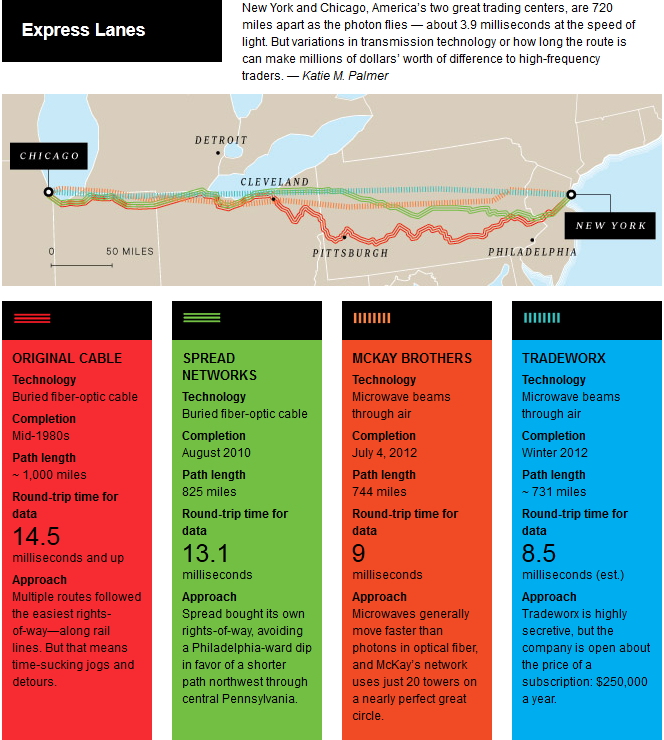Must read article in Spetember edition of Wired Magazine on How Wall Street Got Addicted to HFT. In light of the JKnight Trading snafu, Wired decided to post it on line earlier than suual.
Here is an excerpt:
“Faster and faster turn the wheels of finance, increasing the risk that they will spin out of control, that a perturbation somewhere in the system will scale up to a global crisis in a matter of seconds. “For the first time in financial history, machines can execute trades far faster than humans can intervene,” said Andrew Haldane, a regulatory official with the Bank of England, at another recent conference. “That gap is set to widen.”
This movement has been gaining momentum for more than a decade. Human beings who make investment decisions based on their assessment of the economy and on the prospects for individual companies are retreating. Computers—acting on computer-generated market trend data and even newsfeeds, communicating only with one another—have taken up the slack. Conventional economics views all this as an unalloyed good: It is axiomatic that all trades are a net benefit to the economy because they enhance “liquidity,” the ability of investors to buy or sell assets at the best price. Indeed, in 2007 the SEC instituted an ambitious new rule, the national market system, that opened the door to dozens of new venues for stock trading, but now that transaction times are measured in microseconds and prices are carried out to six decimal places, those opportunities have arguably gone past a point of diminishing returns.”
Go read the full article . . .
Source:
How Wall Street Got Addicted to Light-Speed Trading
Jerry Adler
Wired, 08.03.12
http://www.wired.com/business/2012/08/ff_wallstreet_trading/all/



What's been said:
Discussions found on the web: